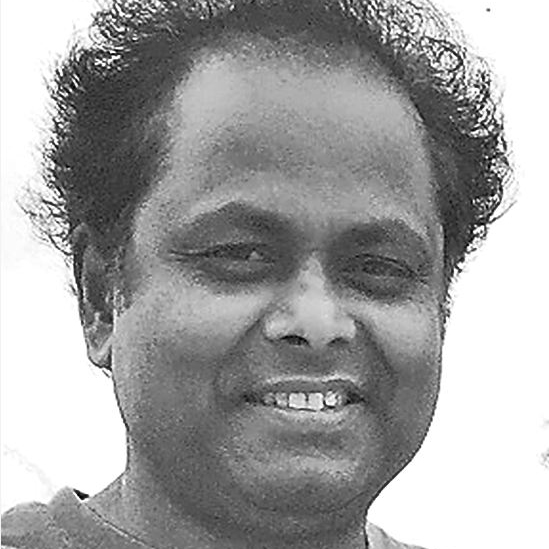Opinion
The role of religion in education
Religions should help individuals achieve spiritual heights; they must not be allowed to impede an individual’s growth.
Pramod Mishra
The April 21 edition of the BBC Media Action produced and Kantipur Media telecast programme Sajha Sawal (Common Questions) went to Kapilvastu district’s Krishnanagar, near the border between India and Nepal, to organise a dialogue between the local people (mostly Muslim men and women) and three interlocutors. Among them were two politicians—Ghanshyam Bhusal, the Nepal Communist Party’s thinker and member of Parliament, and Abhishek Pratap Sah, the local Congress member of Parliament—and Mohna Ansari, commissioner of the National Human Rights Commission of Nepal.
The presenter informed the audience in his initial announcement that Kapilvastu district was behind all 12 districts of Province 5 in education, healthcare and employment. Later on in the programme, we learned that the literacy rate among Muslims is only 44 percent, and that Muslims are poorer than even Dalits. In one sense, it was shocking to me, but in another sense (since my house stands in the middle of a Muslim village in Morang), I had a sense of déjà vu.
Of language and culture
The one-hour session between the audience and the three interlocutors made me think of a number of things about Nepali—especially Madhesi, and particularly Muslim—society and its relationship with the state; about the role of language, gender and religion in human progress; and about why a specific community remains poor, less educated and socially backward whereas other communities make better progress in various areas of human endeavour. How can the people themselves, their community leaders and their organic intellectuals help the community navigate its way forward?
For example, in the show, Muslim women, covered to various degrees, were asked questions about their healthcare and educational facilities. Even women whose faces were covered spoke courageously about their predicament; they demurely contradicted their male community leaders’ attempt to mansplain the Muslim community’s treatment of females in comparison to males. But one of them, with her face covered, asked why Madrassa education is less valued than other mainstream schools and not equally recognised for scholarships. While women spoke of their problems, male community leaders, especially the clergy, spoke of how to safeguard Islamic culture and how girls and boys going to school together would make girls run away with boys against the wishes of their fathers, a result against the objectives of education.
The show also made it clear that language and the Nepali state’s discriminatory treatment are big barriers for minority empowerment. Both men and women were not able to speak clearly in Nepali although they could speak Hindu/Urdu fluently. One woman, a teacher, read out a prepared message, but when she was asked a question later on in the show, she couldn’t speak beyond a few words, even though she clearly knew what she wanted to say. Some of the men spoke in Hindi/Urdu (voice-over translation was provided) but nobody spoke in their local language. It was thus clear that language is one of the biggest barriers for non-Nepali speakers to participate in the national mainstream. As for the state, the less said the better.
But the biggest barrier for self-improvement and empowerment, especially for women, is religion as interpreted by the Muslim clergy and followed blindly by community leaders. As the Hindu priestly class has kept women and lower castes educationally backwards for centuries, the Muslim clergy has kept both men but especially women educationally and socially backward and disempowered. In the show, the Moulvi who had travelled all the way from Dang, basically said that unless there are girls-only schools, Muslim girls can’t go to school because if they do, they would become willful and get corrupted.
What did he think of commissioner of the National Human Rights Commission Mohna Ansari’s response? When asked how long she attended a Madrassa, Ansari said that she had only two years of Madrassa education and that the rest of her education occurred in a government school and college, which were obviously co-ed institutions. What would have happened if Ansari had attended only a Madrassa and received only a religious education in Urdu and Arabic? Would she still have been a lawyer, as proficient as any in Nepali speech and writing and risen to where she is now?
The story of a brilliant boy
In my village, there was a brilliant boy, a few years senior to me, in the family of my Muslim aunt (my mother had made her sister, and so I called her Mejbani Mausi). This boy, Mejbani Mausi’s husband’s youngest brother, was sent to some famous Madrassa in western Uttar Pradesh, India. The boy stayed there for many years while I went through government schools and college in Nepal and India. Eventually, the boy returned home as a young man with an Aalim degree (Aalim and Fazil are Madrassa degrees). Once home, what could he do with his knowledge of Arabic? He knew little English, even less math, let alone Nepali or even Hindi. He didn’t want to be a clergyman. So, he became a tailor; and he is still a tailor even though the villagers call him Moulvi Sahib. There is nothing wrong in being a tailor after getting educated. But the point is that after years of education, one’s education should come to some use in the culture and country in which one spends one’s life.
The other lesson is that religion and clergy have their respectable and rightful place in any society, community or country. But in matters of running a village, a community and a society—in matters of human progress and development in this world—the clergy and religion should not be allowed to dictate the terms. They can be allies for education, as Protestantism became a driving force for the education of its followers in the 17th century. In a democracy, it is the people of the community, the country and the village who should collectively make decisions about education, healthcare and other non-religious matters that help navigate society and empower individuals-whether they are men, women or children. Religions should help individuals achieve spiritual heights; they must not be allowed to impede an individual’s worldly growth.
Mishra is the department chair of English Studies at Lewis University in the United States




 9.51°C Kathmandu
9.51°C Kathmandu










